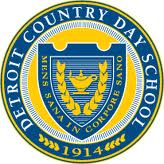Historically educators have been very isolated. The nature of traditional school day schedules leaves little time for teachers to talk with one another about their practices and to learn from one another. In recent years, many schools have turned to what have been termed "Professional Learning Communities" (PLCs) to give teachers more opportunity to work collaboratively and develop strategies to impact student achievement. This practice has proven successful in many iterations, and in fact we employ it at Country Day. More recently schools have adopted the concept of professional "rounds" that is common in medical professions. In this concept, teachers make visits to one another's classrooms to learn how others implement curriculum, and to open collegial conversations. This practice gives teachers the kind of big picture look at their school which has historically been reserved for administrators who are often not teaching any longer. It is during my own "rounds" in our schools that I gain the greatest insights into what is happening in classrooms.
One of the educational buzz terms these days is "authentic" assessments. The concept is essentially that students be able to demonstrate application skills that require authentic uses of their knowledge as opposed to artificial assessments that require cold memorization and regurgitation of facts. In recent rounds at our Upper School, I have observed many wonderful examples of authentic assessments that engage students in high level critical thinking:
* In a recent visit to an English classroom I observed a faculty member using students' propensity for "tweeting" in tightly worded blurbs. He required students to find succinct "tweet" length statements that summarized key components of a complex piece of literature. This approach resulted in students using an economy of words for a good purpose, and put the assignment in a context that resonated with students and the way they often communicate. The instructor implicitly and explicitly made the point that sometimes an economy of word choice has real "authentic" usefulness, and students were forced to think clearly to meet the requirements.
* In a visit to an AP Government classroom I observed a teacher using an interactive website to teach students re-districting. Each student brought their mobile device to class, logged into the site, and was given a complex set of instructions to re-district a hypothetical geographic area to benefit their hypothetical political party. The game was played as a competition, and students applied skills they had learned in class to an authentic exercise.
* In a recent visit to a 4th grade classroom, I observed students constructing a tee pee out of raw materials in a way similar to characters in a story they read had done. This exercise gave the students a real understanding of the complexity of the task.
"Authentic" assessments require students to use that which they have learned in real and meaningful ways. Sometimes parents, teachers, and even students, feel that assessments have to be stapled, multi-page "events" in order to give an accurate perception of student knowledge. The truth is that sometimes that approach is appropriate, and other times not. If we're being honest with ourselves, the tests that we "crammed" for and successfully passed by regurgitating information often did not result in lasting understanding of content. On the other hand, circumstances that required the application of knowledge to new and unfamiliar problems stay with us because the assessment is itself a learning experience.
As we continue our work towards a more exploratory, project based program of curriculum and instruction, part of our task will be to develop authentic ways to assess student learning. Putting that theory into practice, instructional rounds allow teachers to develop their own skills by analyzing the approaches of others and comparing and contrasting them to their own.

The Principal's Office is a blog created by Tim Bearden, Chief Academic Officer and Upper School Director at Detroit Country Day School, an independent school in Beverly Hills, MI. While content will sometimes be specific to Country Day, the majority of posts are specific in scope to issues concerning teaching and learning in the 21st century.
Saturday, February 23, 2013
Tuesday, February 5, 2013
Pep Talk from Kid President
All of us can use a pep talk every now and then, and I think we can all agree that pep talks from kids can be special - this one is no exception. One of our teachers / directors sent me this great video - hope you enjoy., and watch all the way to the end!
Not cool Robert Frost....
Not cool Robert Frost....
Subscribe to:
Posts (Atom)